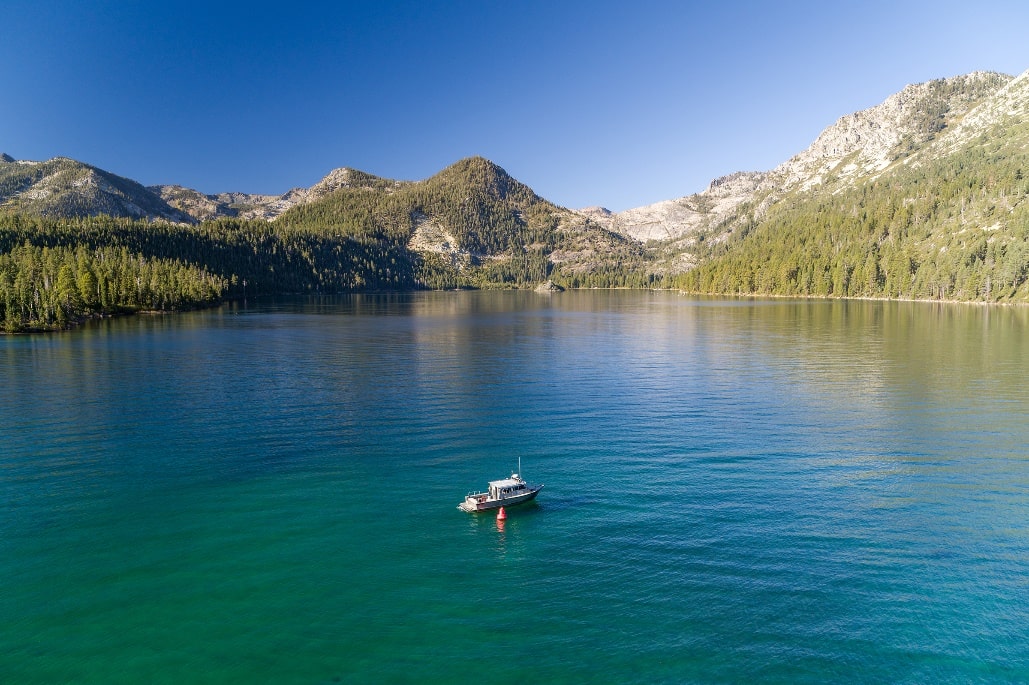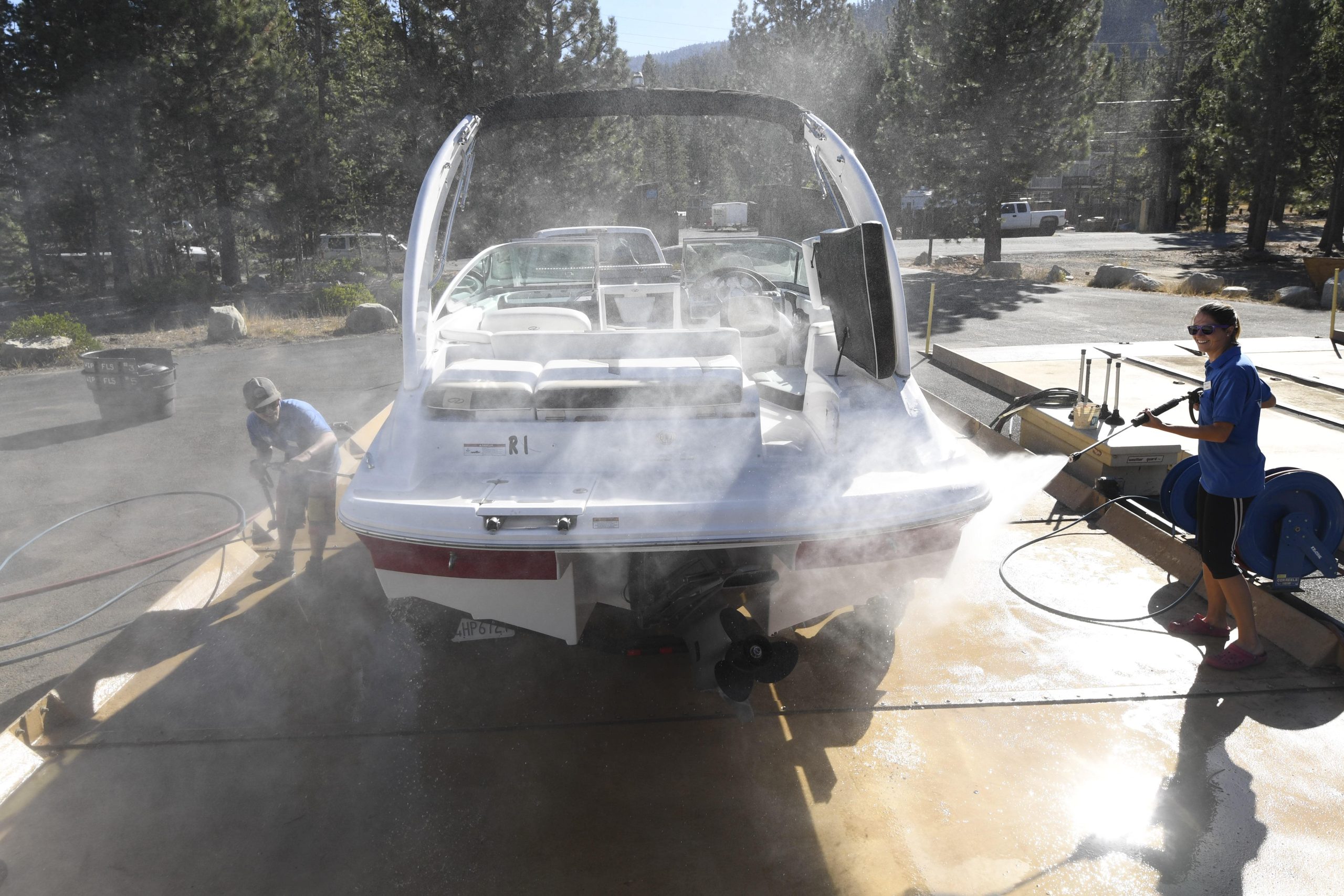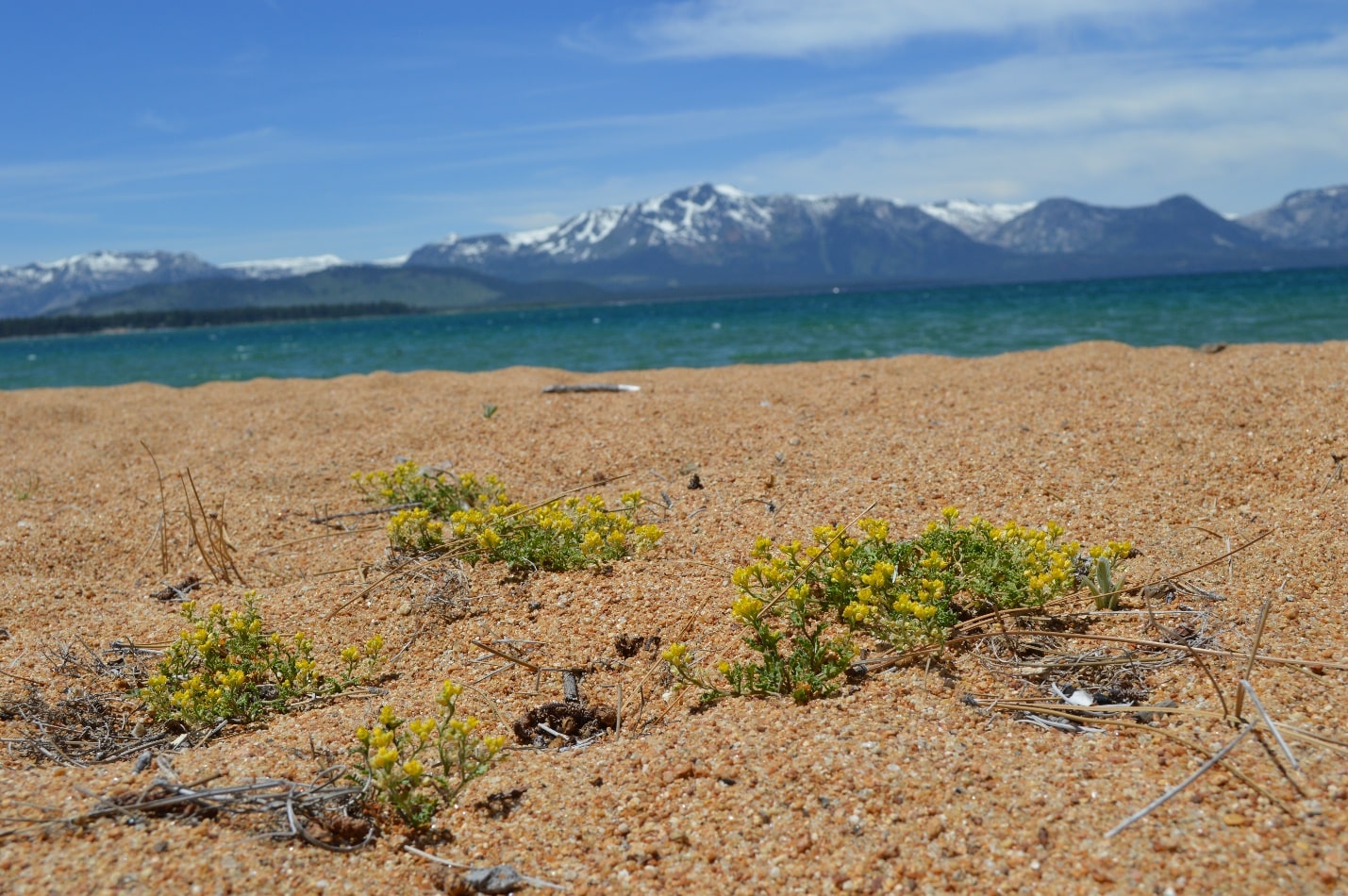
As Lake Tahoe, CA, continues to fill to its brim from the melt-off of a record snowpack, the Tahoe Regional Planning Agency (‘TRPA’) is reminding boaters about on-the-water safety and aquatic invasive species boat inspections. The agency is highlighting native species protection programs and legal and safety requirements below ahead of boating season to improve safety and protect Lake Tahoe’s environment and native ecosystem.
Watercraft inspections
- All motorized watercraft must be inspected for aquatic invasive species or have their Tahoe inspection seal checked before launching into Lake Tahoe, Fallen Leaf Lake, and Echo Lakes.
- All watercraft must be launched from a managed boat ramp or marina after inspection. Earlier this year, the TRPA Governing Board approved violation settlements with two boaters who launched their vessels across private property without the appropriate inspection. Each boater was fined $4,000.
- Arriving to the inspection station with a vessel that is Clean, Drained, and Dry will save time and protect the lake.
- Paddlers can receive free inspections at inspection stations and can self-inspect by becoming a Tahoe Keeper. Two solar-powered, self-serve cleaning stations for paddlers are available for the first time this season. One unit will be located at Meeks Bay, the other will be shifted strategically around the basin.
- An online appointment system is now available that adds convenience for boaters. Follow their social media channels for updates to station hours and operations.

Picture: Novus Select
No-wake zones and boating safety
- Lake Tahoe has no-wake zones to keep boaters and swimmers safe. Under the 2018 Shoreline Plan, motorized boats must stay under 5 mph when boating within:
* 600 feet of shore
* 100 feet of paddlers and swimmers
* 200 feet of shoreline structures
* Emerald Bay - Download the Tahoe Boating App for services and to learn more about no-wake zones at tahoeboating.org.
- TRPA watercraft crews will be on the lake providing boater education of the no-wake zone.
- A new Lake Tahoe video warning boaters about cold water shock, on-the-water safety, and no-wake zones is being shown at boat rental locations and shared on social media.
Buoys and moorings
- The 2018 TRPA Shoreline Plan capped the total number of moorings, buoys, and piers that can be allowed in Lake Tahoe.
- If you are a mooring buoy owner, please make sure your permit tags are on.
- TRPA boat crews will be surveying and marking illegal buoys and buoys without permit tags this summer.
- More information can be found online.
Online boat rentals
- TRPA requires permits for shoreline business activities including boat and personal watercraft rentals, boat tours, and paddleboard and kayak rentals and tours.
- Unpermitted person-to-person boat rentals and similar online businesses, whether from private docks, piers, or moorings or from public beaches, are subject to enforcement. The TRPA compliance team is working with marinas and public boat ramp managers to communicate with unpermitted operators.
- Commercial activity from residential moorings is also not permissible under the Shoreline Plan.
- The agency closed a $30,000 violation settlement last year with a boat rental company in South Lake Tahoe that was operating and mooring illegally.
- To report a concern, call TRPA at (775) 588-4547 or submit information online.
Tahoe yellow cress protection
Tahoe yellow cress is a sensitive beach plant native to Lake Tahoe and found nowhere else in the world. It lives only on the sandy beaches and dunes on the margins of the lake. In high water years like this one, its habitat shrinks.
- Beach goers, boaters, and shoreline property owners can help protect Tahoe yellow cress by not disturbing plant life along the shore and staying out of protected areas.
- Property owners can apply for a habitat inspection beginning June 15 at aca-prod.accela.com/TRPA. Create an account and follow instructions to start a new application.

One thought on “How to Protect the Tahoe Shoreline”